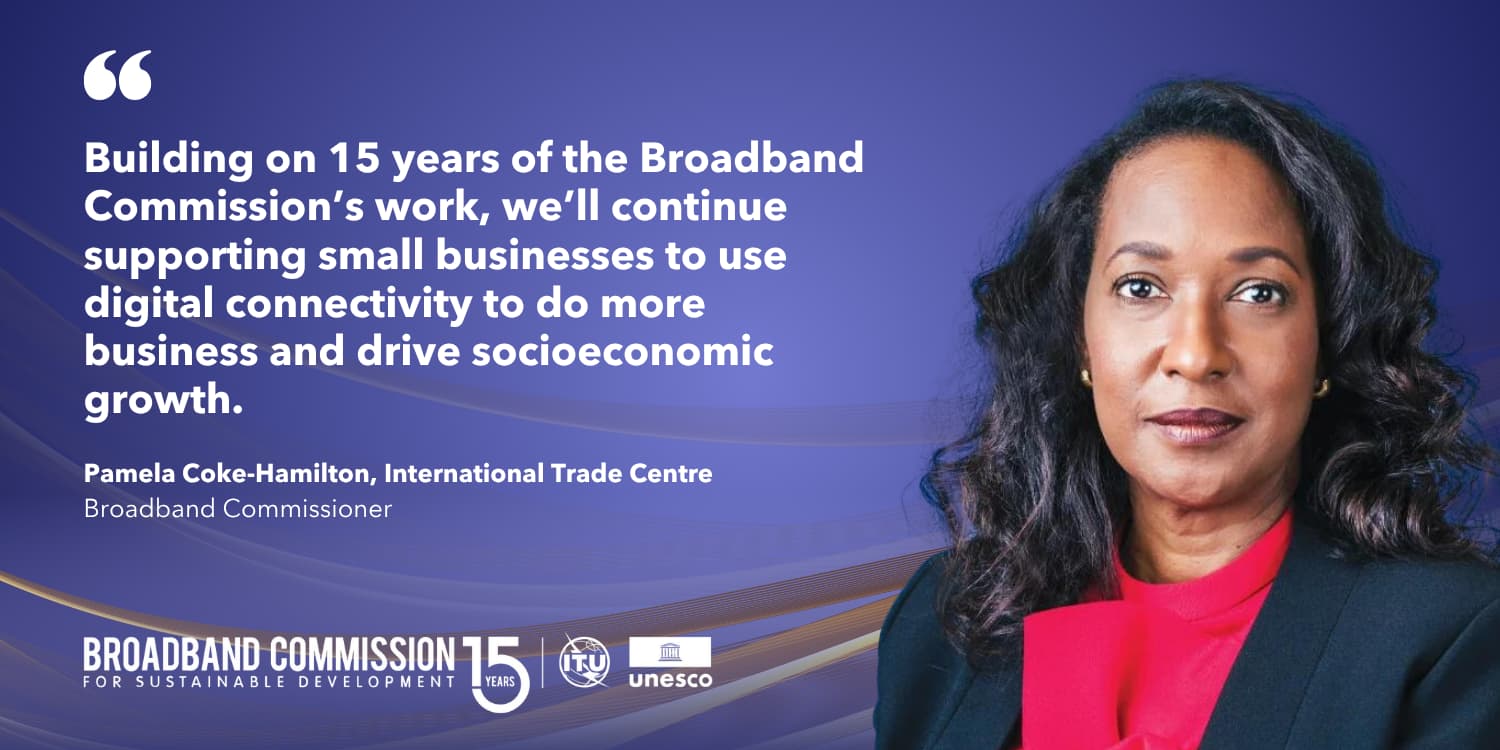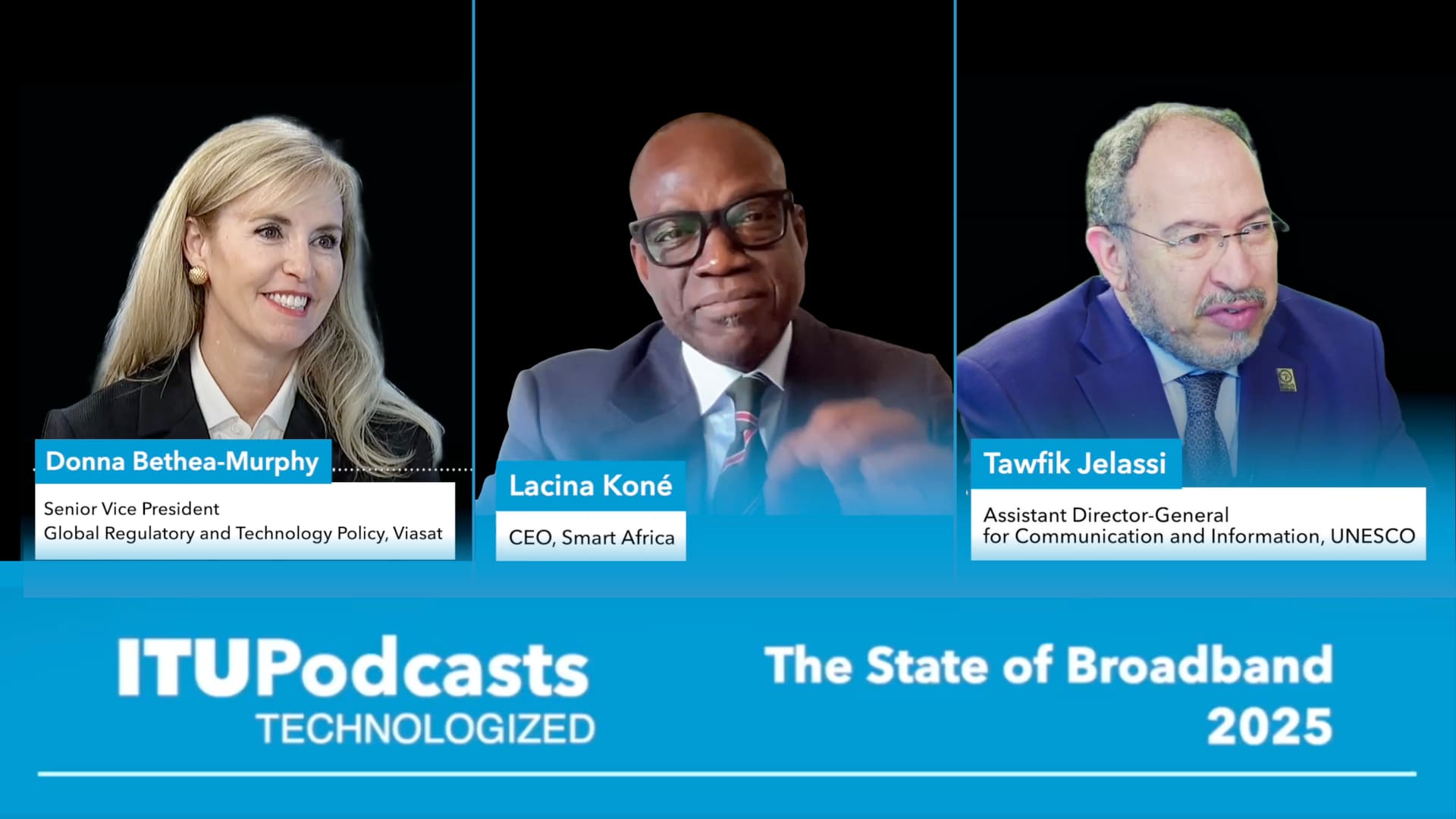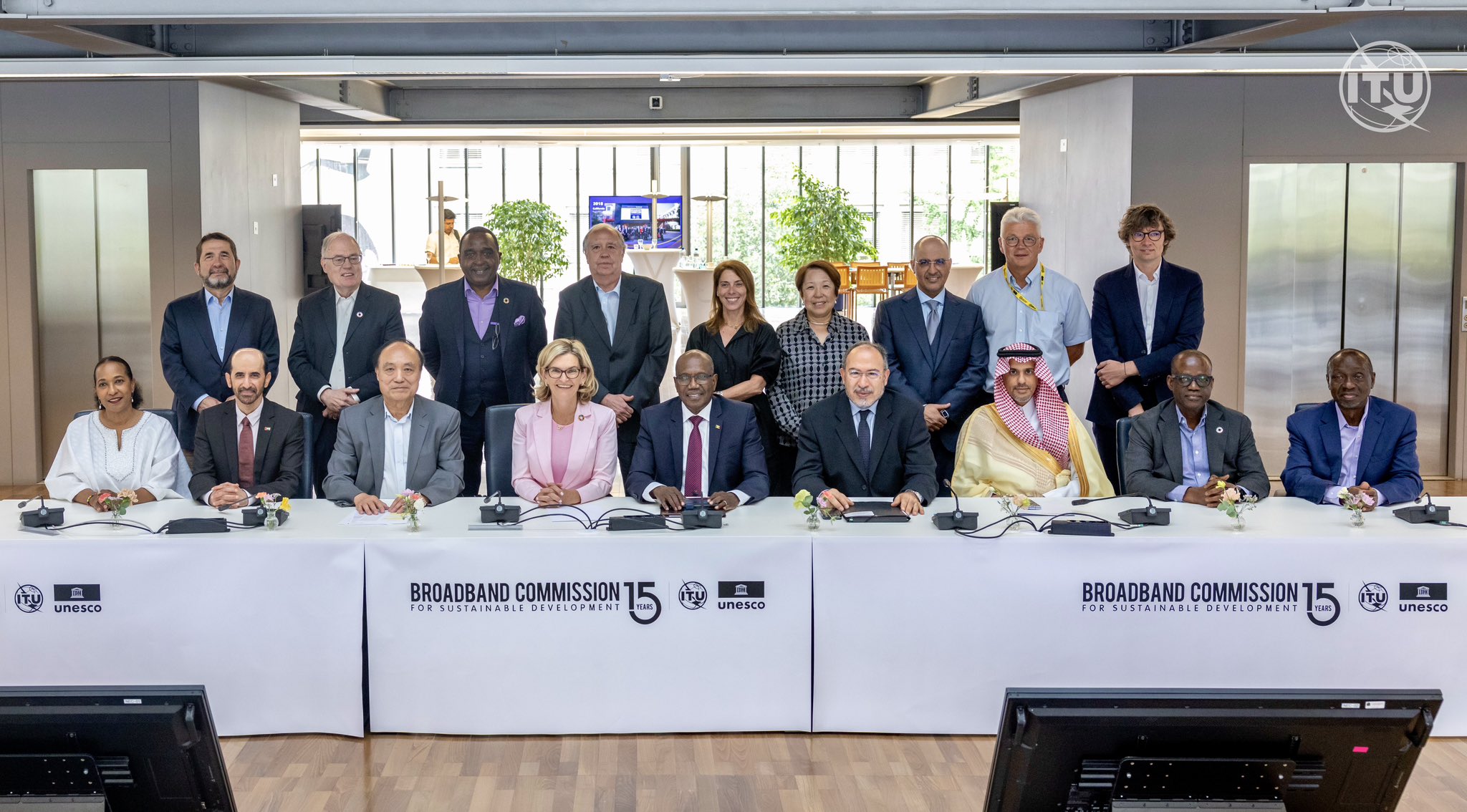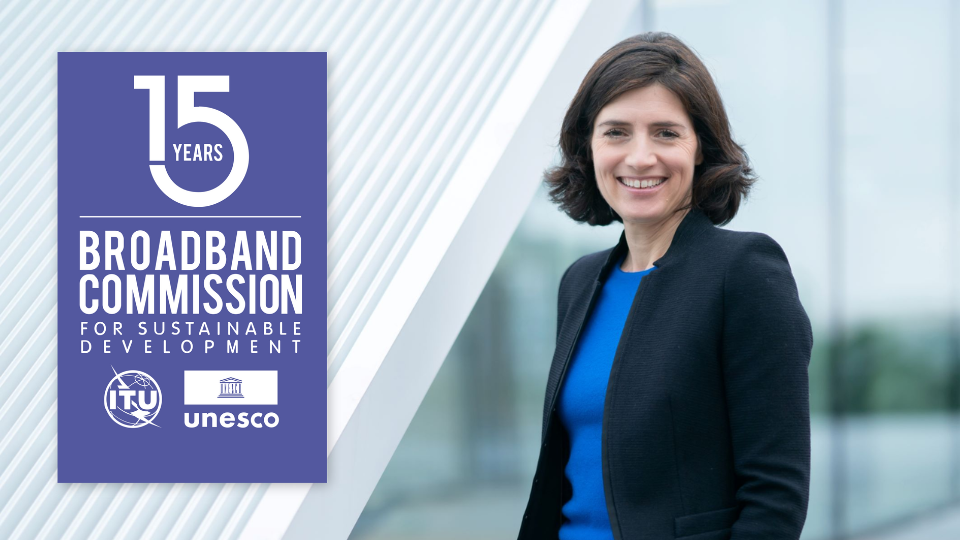
As the Executive Director of the International Trade Centre (ITC), Pamela Coke-Hamilton has brought a clear focus to the role of digital connectivity in driving inclusive economic growth. Throughout her time as a Commissioner, she has worked to ensure that small businesses, particularly those led by women and youth, can access the tools, training, and infrastructure they need to compete in an increasingly digital global economy.
Partnering to empower digital entrepreneurs
Early participation in the Commission’s 2017 Working Group on Digital Entrepreneurship helped inform ITC’s FastTrackTech methodology, launched in 2019. The programme supports digital freelancers and tech startups across Africa, Latin America, and Asia through a practical model of business assessments, coaching, and matchmaking. Since its launch, FastTrackTech has supported nearly 350 entrepreneurs, with over 3,000 digital freelancers in Africa trained since 2022 and 2025.
In the same year, ITC participated in the Digital Infrastructure Moonshot for Africa working group under the leadership of the World Bank Group. This engagement helped shape ITC’s digital priorities in Africa backed by further research, including the Africa Marketplace Explorer and digital studies featured in the SME Competitiveness Outlook.
Supporting MSMEs and closing the usage gap
In 2023, ITC co-led the Working Group on Connectivity for MSMEs alongside GSMA, resulting in joint digital literacy programming in countries such as the Philippines and Sierra Leone. These efforts combined GSMA’s mobile internet expertise with ITC’s trade facilitation work to support small businesses in adopting digital tools and expanding market access, directly supporting the Commission’s Advocacy Target 6 on getting MSMEs online and building inclusive digital economies.
This collaboration also produced the report Making Connectivity Work for MSMEs, which highlights how digital connectivity can enable small businesses to participate in global trade and improve their competitiveness. It identifies key barriers—infrastructure, affordability, digital skills, and policy—and outlines strategies to expand access.
Expanding digital skills and promoting gender equity
ITC has demonstrated a long-standing commitment to Broadband Advocacy Target 7 on gender digital inclusion, through its SheTrades Initiative , much of which focuses on digital skills and market access.
One example is the renewed collaboration between SheTrades and Visa, which is supporting women entrepreneurs in the Gulf region, as well as women and youth entrepreneurs in Kenya and South Africa, to strengthen their digital skills, adopt digital financial services, and deepen their understanding of fintech solutions. Similarly, in the past 7 years, through its partnership with UPS, SheTrades has reached thousands of women entrepreneurs across five regions, delivering tailored capacity-building programmes to help them implement digital strategies and harness AI-powered tools for business growth.
Another example is the Women Exporters in the Digital Economy (WEIDE) Fund, a joint initiative of the WTO and ITC. The US$50 million fund aims to empower women-led MSMEs in growing their businesses by leveraging international trade and digitalization. The Fund offers grants and technical assistance (on digital and financial skills), and is implemented through a two-track approach, one targeting women-led MSMEs with export potential (Discovery track) and the other targeting women-led MSMEs that are exporting or are export ready (Booster Track). To date four Business Support Organizations have been selected country partners for the first round of the Fund – Centro de Exportación e Inversión de la República Dominicana (ProDominicana), Jordan Enterprise Development Corporation (JEDCO), Mongolian National Chamber of Commerce and Industry (MNCCI), and the Nigerian Export Promotion Council (NEPC). The roll out of the technical assistance and grants package is due to begin in Q3 2025.
Additionally, the project partnered with GSMA to host a mobile-for-development workshop to enhance collaboration between mobile operators and start-ups, further strengthening the digital ecosystem for women entrepreneurs.
In parallel, ITC’s SME Trade Academy has become a cornerstone of its digital learning ecosystem. It now serves over 80,000 learners annually through a catalogue of more than 120 courses and 40 localized platforms. These offerings support the Commission’s Advocacy Target 4 on digital skills and use a learner-centric methodology that blends technology, interactivity, and AI.
Youth empowerment and regional partnerships
Through the READY Salone project in Sierra Leone, ITC aims to unlock economic opportunities for youth and youth-led businesses in the digital economy. This initiative exemplifies ITC’s broader commitment to inclusive development across age groups.
Alongside regional Broadband Commission members, ITC is also defining support initiatives for digital skills building programmes in the Caribbean and Mexico.
Looking back
Looking back at the Commission’s impact, Pamela Coke-Hamilton’s work stands as a clear example of how high-level policy can translate into meaningful local action. Through partnerships, targeted programmes, and a focus on small businesses, women, and youth, ITC continues to shape a more inclusive digital future.
The ideas and opinions expressed in these insights are those of the authors; they do not necessarily reflect those of ITU and UNESCO or the Broadband Commission, or imply endorsement




